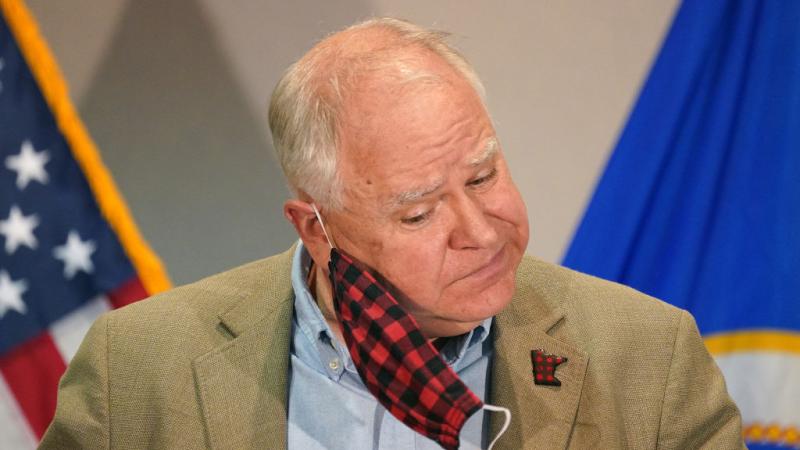State Dept. tackles climate change across Asia and Pacific with video classes, interactive workshops
Efforts include $25,000 to "enable Pacific Islander youth to use their smartphone to tell how climate change affects them."
The Golden Horseshoe is a weekly designation from Just The News intended to highlight egregious examples of wasteful taxpayer spending by the government. The award is named for the horseshoe-shaped toilet seats for military airplanes that cost the Pentagon a whopping $640 each back in the 1980s.
The State Department hopes to fight climate change in Asia and the Pacific with over $1.5 million in combined funding for virtual filmmaking classes for Pacific Islander youth, an interactive program to workshop solutions to the "climate crisis" in Sapporo Japan, and a project to elevate the role of women-led organizations in "climate policymaking and programs" across South Asia.
The funding opportunities, detailed at Grants.gov, comprise:
- $25,000 for My Climate Story;
- $30,000 for a Climate Hackathon;
- $1.48 million for Inclusive Action for Climate Change.
The U.S. Embassy to Fiji announced the "My Climate Story" grant, which will fund "virtual storytelling and filmmaking classes" in multiple countries in the Pacific Island region, according to the grant description.
"These classes will enable participants to chronicle the effects of climate change in their communities and enhance their ability to advocate for the security, economic health, and long-term survival of their countries while raising greater regional and global awareness of the already severe impacts of climate change in the Pacific," according to the grant's program description.
"'My Climate Story' will offer virtual filmmaking and storytelling master classes to enable Pacific Islander youth to use their smartphone to tell how climate change affects them, adding a human element necessary to promote a sense of urgency on climate issues," the embassy explains.
The "Climate Hackathon" is a forecasted opportunity posted by the U.S. Consulate in Sapporo, Japan as part of its commitment to "combatting the climate crisis and supporting sustainable energy adoption in Northern Japan."
"Realizing success in the battle against the climate crisis will require innovative approaches over the long term, it is essential for Japan's youth and next-generation scientists, tech sector workers, entrepreneurs, and opinion leaders to develop a better understanding of the issues and start to workshop potential solutions," according to the grant description.
The consulate envisions bringing approximately 30 to 50 students and mentors together, preferably in 2022, in an interactive program that could be "online, in-person or hybrid depending on the public health environment."
Posted by the State Department's Bureau of South and Central Asian Affairs, the $1.48 million "Inclusive Action for Climate Change" grant seeks to "promote gender equity in climate policymaking and programs in selected countries in South Asia."
"The project will strengthen the capacity of women-led organizations" in the region "to participate meaningfully," according to the program description, "in political discussions regarding national and local policies on climate change adaptation; advance the role of women in community-led conflict resolution arising from the climate crisis and its effects; and assist women-led organizations to advocate for and achieve gender equity and equality in climate change adaptation efforts, including in emergency preparedness and recovery from climate-related disasters."
The State Department did not provide any additional comments on the grants.
















